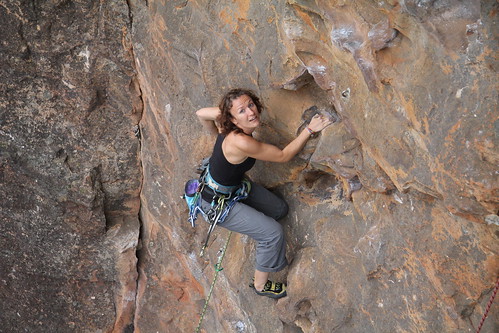 Rush arrived at the Frank Erwin Center on Tuesday night for the start of their latest tour, just 5 days after being inducted into the Rock and Roll Hall of Fame. What ended up as a phenomenal 2.5 hour performance started with a song from 1982 called "Subdivisions". It immediately took me back to a place many years ago: January, 1984.
Rush arrived at the Frank Erwin Center on Tuesday night for the start of their latest tour, just 5 days after being inducted into the Rock and Roll Hall of Fame. What ended up as a phenomenal 2.5 hour performance started with a song from 1982 called "Subdivisions". It immediately took me back to a place many years ago: January, 1984.
I will admit, those were difficult times, struggling as many do with trying to find your place in the world. While my friends gravitated towards the hollow mind candy of Top 40 hits, I found myself immersed in musicians like Jimi Hendrix and, yes, Rush. I saw the world a little differently than most of my friends, and it certainly wasn't without it's share of friction.
Meanwhile, there was this class called "Canadian literature" that I had to survive. Little did I know that it would change my world and forever alter the course of my life.
 The last few days have had me in a reflective mindset. I think it relates to spending more time out walking and hiking at a local park. It is a time to breath, to get away from the demands of the world - just me and my thoughts, nothing more, nothing less.
The last few days have had me in a reflective mindset. I think it relates to spending more time out walking and hiking at a local park. It is a time to breath, to get away from the demands of the world - just me and my thoughts, nothing more, nothing less.
Of course, the clarity gained while wandering the trails leads to a natural flow of thoughts and plenty of ideas for writing. It is amazing how much good rhubarb can be found out on the trail.
Episode 65 of the Rhubarb Report dives into running, responses to recent national tragedies, and, who else, Rush - and not the Limbaugh variety either.
 Imagine, if you will, a world in which arbitrary rules are placed on which cars you can purchase or what milk you can drink. Imagine that same world limiting your access to the Internet for certain purposes like, say, reading Consumer Reports. Imagine having regulations placed on the neighborhoods in which you can purchase a house, regardless of how much money you are ready to spend.
Imagine, if you will, a world in which arbitrary rules are placed on which cars you can purchase or what milk you can drink. Imagine that same world limiting your access to the Internet for certain purposes like, say, reading Consumer Reports. Imagine having regulations placed on the neighborhoods in which you can purchase a house, regardless of how much money you are ready to spend.
The inevitable question is "why the limits"? And the response is, well, "just because".
I have no doubt you would be outraged. You would immediately think that your freedoms and liberties were being trampled upon, and you wouldn't consider that acceptable at all.
But what happens when it comes to your health and health care?
 I want to do more. I am not doing enough. I need to train harder. I need to train longer.
I want to do more. I am not doing enough. I need to train harder. I need to train longer.
These are all common themes when developing a training plan with an athlete. It doesn't matter what sport is involved, the questions and concerns always revolve around these issues or a variant on one of these themes.
But what is the real underlying intent or motivation? Is it as obvious as it sounds?
Not always.
It is important to get down to the underlying motivation, context, and behaviors that drive the discussion in order to optimize the athlete's training - both physically and mentally.
 When I first started playing the guitar, I gravitated towards the blues. Over a relatively short period of time and self-teaching, I began playing in coffee houses, campus pubs, and eventually open mics (and my own short-lived band) here in Austin.
When I first started playing the guitar, I gravitated towards the blues. Over a relatively short period of time and self-teaching, I began playing in coffee houses, campus pubs, and eventually open mics (and my own short-lived band) here in Austin.
Music has always given me a creative outlet, a means of self expression and self reflection. You can learn a lot of things while playing blues guitar in front of a live audience of 1 or 100. In retrospect, playing blues guitar taught me some important things about the art of teaching.
Although it might sound crazy,there are definitely some distinct commonalities between playing live blues guitar and standing in front of a classroom leading a group of students on a learning adventure.
 Life on planet earth requires a daily battle against gravity. You are either accelerating the body against it, or decelerating the body to control or diminish its effects. Either way, every motion is a function of mechanical loading.
Life on planet earth requires a daily battle against gravity. You are either accelerating the body against it, or decelerating the body to control or diminish its effects. Either way, every motion is a function of mechanical loading.
If our primary task is to improve human function, then we must strive to understand the dynamics of mechanical loading. By doing so, we can understand the behavior of the human system as it attempts to adapt to the imposed demands of life on the planet.
Meanwhile, in the haste to do their own "testing", clinicians will forget that the patient is performing countless mechanical loading "tests" throughout the day before they ever walk in the door of the clinic.
As a clinician, you cannot deny the importance of mechanical loading as an integral component of human movement. And why would we want to? Mechanical loading is the best assessment tool we have. Here's why.
 We can learn a lot from plumbers. And health care would be better for it.
We can learn a lot from plumbers. And health care would be better for it.
You don't think twice about getting a plumber, do you? You check out the competition, read some reviews, do a little cost comparison, and find the best value for your money. You probably ask friends and co-workers if they have a recommendation.
The plumber then has a project to be done - at a certain price, for a specific level of quality or workmanship. The plumber is now accountable for the outcome. You demand that accountability for the project - on time and on budget - otherwise, you don't pay them fully, or you give them a bad review - or both.
It's pretty simple, isn't it? Some basic consumer principles - the product of a market economy - drive the scenario effectively.
As consumers, we probably pay more attention to our choice of plumber than our health care.
 "Running Injuries: Etiology And Recovery- Based Treatment" (co-author Bridget Clark, PT) appears in the third edition and fourth editions of "Clinical Orthopaedic Rehabilitation: A Team Approach" by Charles Giangarra, MD and Robert C. Manske, PT.
"Running Injuries: Etiology And Recovery- Based Treatment" (co-author Bridget Clark, PT) appears in the third edition and fourth editions of "Clinical Orthopaedic Rehabilitation: A Team Approach" by Charles Giangarra, MD and Robert C. Manske, PT.
 Allan Besselink, PT, DPT, Ph.D., Dip.MDT has a unique voice in the world of sports, education, and health care. Read more about Allan here.
Allan Besselink, PT, DPT, Ph.D., Dip.MDT has a unique voice in the world of sports, education, and health care. Read more about Allan here.
 Top 5 finalist in three categories: "Best Overall Blog", "Best PT Blog" and "Best Advocacy Blog".
Top 5 finalist in three categories: "Best Overall Blog", "Best PT Blog" and "Best Advocacy Blog".